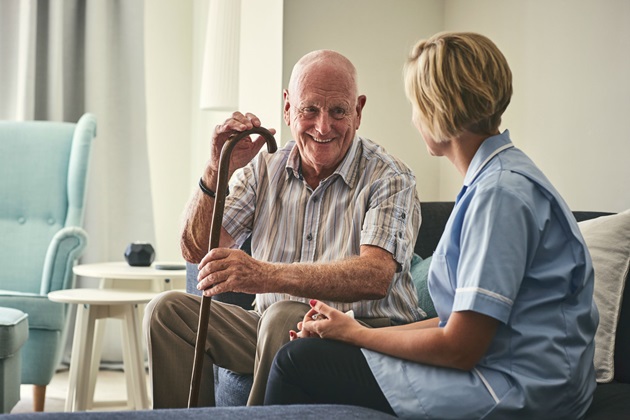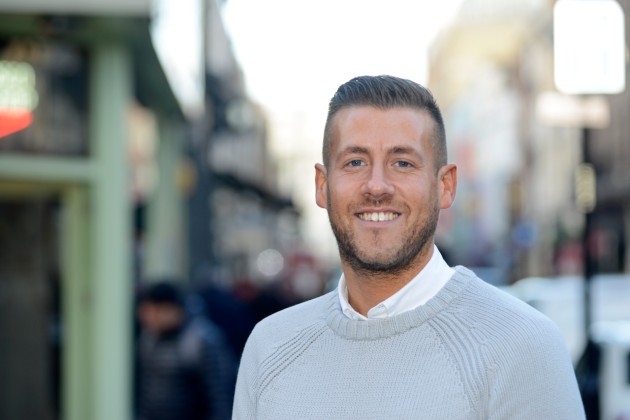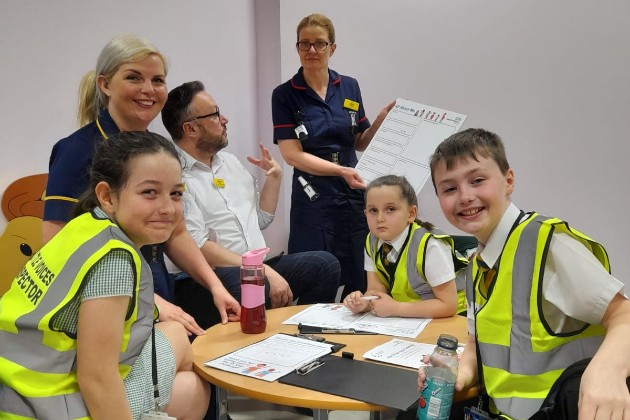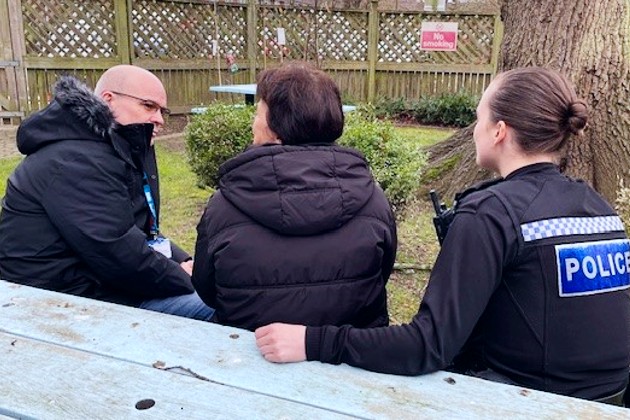Care home staff explain the challenges they face as they go to extra lengths to make sure residents are safe
"Of course, it’s extremely hard to explain to a resident living with dementia what’s going on,” explains Edilmar Espinosa, a senior health care assistant at Castle View Nursing Home on the Isle of Man.
"But as much as we can, we want them to continue to live their lives as normal so we can minimise any confusion they’re feeling. Yes, we are scared, for our residents and our families. But we are strong, and we will see this through."
 Edilmar Espinosa
Edilmar Espinosa
Edilmar’s work is essential. With the home in lockdown, and families and loved ones not permitted to visit residents, he’s dealing with confused residents and their worried families daily.
"Staff here are going out of their way to use technology to maintain family contact. Using FaceTime and Skype means residents can see their families.
"We use these facilities regularly, not just for quiet times, but also activity times, when social distancing rules are still applied.”
The home also has residents who are nearing the end of their lives so an already hard situation can be extra challenging right now.
"It’s important for both them and their families that we take a sensible approach. After a screening process, these residents are allowed to see their family members. It’s the human thing to do," Edilmar explains.
Reputable information
Maintaining a positive attitude is also vital, says Edilmar.
"The feelings staff have about the situation can drive their behaviour. We are here to assist, and we are being strong for our residents. They can see our body language so to maintain trust we need to remain calm and have access to trustworthy information."
Without large-scale human resource departments on site, getting timely information in care home settings can be life-saving. This is where Edilmar’s role as an RCN learning rep has been essential.
He says that ever since the World Health Organization declared COVID-19 a pandemic, staff have been, understandably, extremely worried.
"There is so much information flying around – but it’s not always the information staff here need. In my role as a learning rep, I’ve been able to signpost staff to credible, trustworthy advice and guidance. I’ve used the RCN library for many years so I know from personal experience that I can signpost people to RCN information with confidence.
"I know it is up-to-date, relevant and accurate. I’ve also been working closely with managers here to ensure company policies are shared and understood."
The feelings staff have about the situation can drive their behaviour.
"Right now, we need to work together to get the best outcomes for everyone."
View from the frontline
Jandryle Trondillo is a senior nurse and in-house trainer at Abbeycrest Care Home. He is also an RCN learning rep
Information and guidance were slow coming to us initially, and this made many staff extremely anxious about catching COVID-19.
But it quickly became clear that it was much more likely that we would be a carrier. It was us who could be a danger to the residents we care for.

Lockdown is hard. Not just for residents and their families, but also for us. I don’t like seeing any aspect of care being neglected – and contact with loved ones is very important. So, we are doing what we can. I phone families to advise how their loved ones are and let them know about any changes.
We’re using technology too. Skyping with families helps them see first-hand that residents are being looked after and it makes those we care for feel less lonely too.
Social care must be considered in this crisis situation and continual cross-checking is essential. Just one person in the home needs to be infected for us to be facing a potentially catastrophic situation.
Social care must be considered in this crisis situation
I am fully committed to the residents I work with. I had pre-booked leave when the impact of the situation was starting to emerge. I stayed at home for the whole two weeks so I could confidently go back to work and look after our residents.
Like nursing staff everywhere, we are facing big issues. Rostering is a challenge for us right now, with many staff self-isolating because it’s the sensible thing to do.
I'm lucky enough to work for a brilliant employer. They have reacted quickly to this crisis, setting up a steering group to develop strategies. They’re being supportive of staff who are all being adaptive and flexible. We are just doing our best.
Making sure staff are protected
The supply of personal protective equipment to care home settings has been the subject of intense debate as illustrated in this recent BBC article.
Clare Jacobs, RCN National Officer for Independent Health and Social Care, says the personal safety of nursing staff working in care homes must be a priority for themselves, the residents they care for, and their families. That includes proper support for use of appropriate PPE in the workplace, rest and in some circumstances social isolation away from residents.
She adds: "The average age of care home staff is older than in other settings, and this must be considered. It’s not unusual to have nursing and care staff working in their seventies. Social care staffing levels were already critical before this outbreak and the RCN will continue to support members in this unprecedented situation.
"Nursing staff working in care homes are going above and beyond for the residents they care for. Risks to their own health and safety must be minimised and they need to be fairly rewarded also.”








